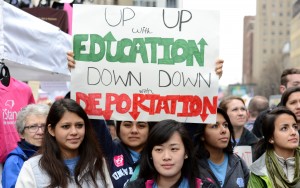
Social justice activists are susceptible to emotional exhaustion from their work. Because of this, education researchers Paul Gorski and Cher Chen were interested in learning about supports that could better sustain social justice education advocates, which could thereby better sustain social justice educational movements.
Noting a lack of research on the burnout of activists working for educational justice, they conducted a qualitative study of 14 social justice education activists (for whom activism was not their paid work) to examine the symptoms and impact of burnout as well as the resources available for coping with and recovering from burnout.
Through interviews, the authors found that symptoms of burnout were high, including sustained emotional and psychological exhaustion, chronic physical ailments, and hopelessness. Because there were few sources of support for addressing burnout, these activists either disengaged or almost quit their respective movements. Particularly, activists of color experienced racism within the movement, which hastened their burnout. Additionally, activists felt guilty if they took time for self-care or talked about burnout due to the culture of martyrdom promoted within educational activist spaces. These social justice education advocates desired more resources for support to help sustain their activism.
The authors assert that the well-being of activists is vital to the health of social justice movements. They recommend open dialogue within social justice education movements about burnout, its symptoms, and resources for support.
You can read the full article here:
Gorski, Paul C., and Cher Chen. 2015. “Frayed All Over:” The Causes and Consequences of Activist Burnout Among Social Justice Education Activists. Educational Studies, 51(5): 385-405.




Comments